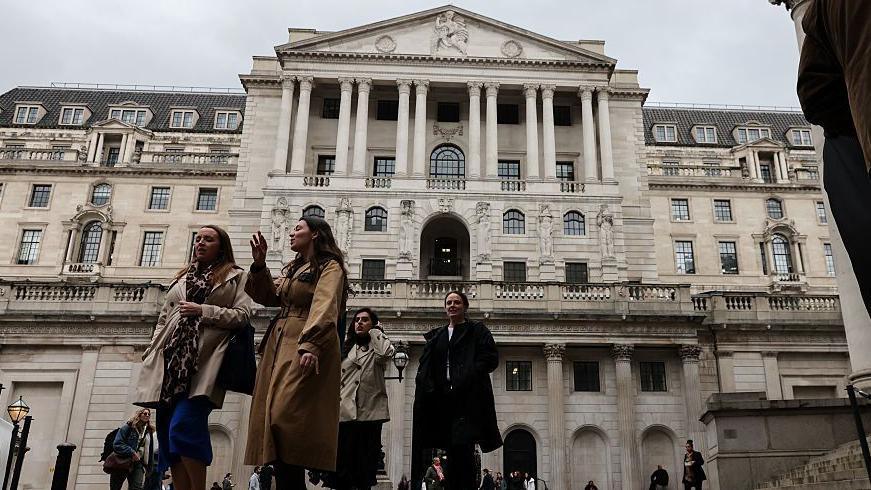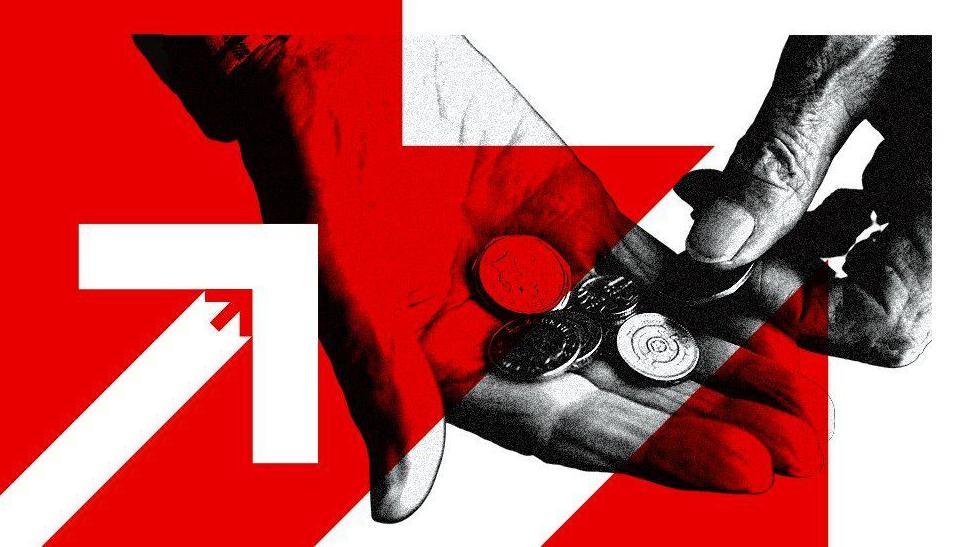Faisal Islam: Surprise inflation jump complicates interest rate decision

- Published
While the economy started this year strongly, Wednesday saw another example of a surprise to the markets in the wrong direction.
In May the economy slowed again, and now inflation has quickened faster than expected. It is expected to stay well above the Bank of England's target level until autumn.
For consumers, still reeling from years of higher prices and a recent pickup in food prices, the new number is less a surprise, more the confirmation of their ordinary day-to-day challenges.
On top of that, and just as important for some people, the bounce in inflation complicates the Bank's rate cut plan.
Investors have been treating it as pretty much nailed on that rates will come down again in August, from the current 4.25%.
Now there is definitely a sense of renewed caution.
A former rate setter at the Bank, the economist Andrew Sentance, even said it would be "irresponsible" for interest rates to be cut next month.
Expectations remain that the cut in August and another one later in the year will go ahead.
But the Bank will have to explain why it is looking beyond this current rise in inflation, into next year's expected drop-back to the 2% target.
It will mean the return of old questions around whether the UK is more inflation-prone than other countries, for example because of increasing wage and tax costs being passed on in the form of higher prices.
A weakening jobs market is another part of the deliberations. The latest employment figures will be published on Thursday.
If, as expected, they show a continued fall in vacancies, then that strengthens the argument for going ahead with a cut in rates. Bloomberg is predicting a 4.9% unemployment rate, up from the 4.6% reported last month.
But as always it is important to keep all the figures in perspective.
True, other major economies have not seen a similar bounce in inflation. The eurozone's latest inflation rate is just 2%. But inflation is nowhere near the highs of the energy crisis, and will come down as energy prices fall in the autumn.
Growth is definitely slowing, but we are not in recession, and the very latest activity figures suggest recovery in some sectors.
Related topics
- Published16 July

- Published6 days ago

- Published6 days ago
